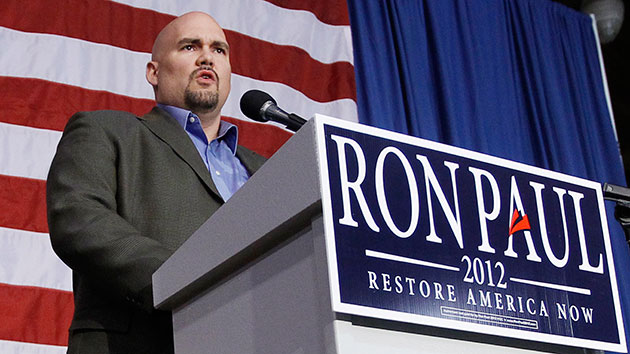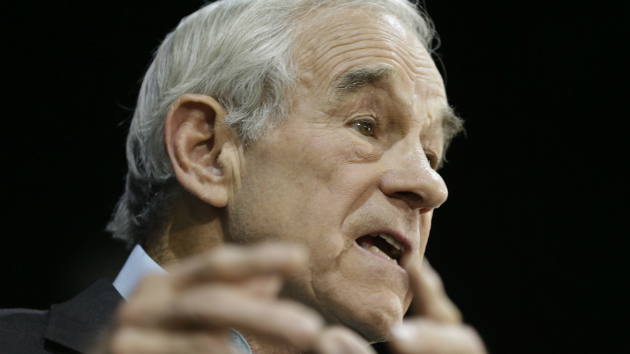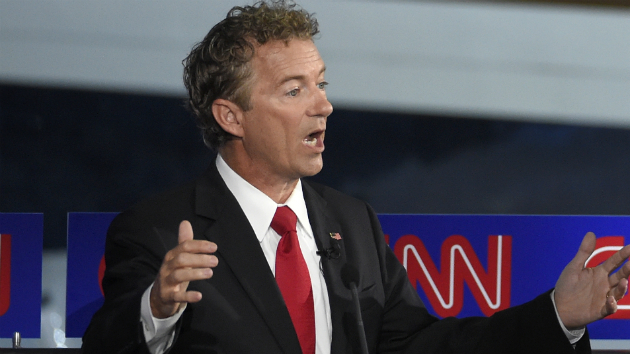
Patrick Doyle/AP
An Iowa jury returned a complicated mixed verdict in the trial of two former Ron Paul aides accused of scheming to pay off an Iowa state senator for his endorsement in the run-up to the 2012 Iowa caucuses, and then hiding the payments from the public and campaign finance regulators. Jesse Benton, the grandson-in-law of Ron Paul and the former head of the main super-PAC backing Rand Paul in his 2016 run, was acquitted on one charge of lying to the FBI about his knowledge of the plan. Dimitri Kesari, a long-time Paul family associate, was found guilty of causing false records but acquitted on a charge that he tried to get the state senator to deny the payments once he realized a federal investigation was underway. The jury deadlocked on three other charges against Kesari accusing him of conspiracy and violating specific campaign finance laws.
Defense attorneys never contested the fact that then-Iowa state Sen. Kent Sorenson (R) was paid $73,000 for switching his endorsement from the floundering Michele Bachmann to the surging Ron Paul in the days before the Iowa caucuses in late 2011. Throughout the trial, however, they did their best to sow confusion about whether the plan to pay Sorenson, and to funnel the payments through a third-party to cover up the transactions, was actually illegal, and whether their clients should be held responsible.
The news of Benton’s acquittal is a boost for Rand Paul, with whom Benton worked closely for years before he was indicted. Benton was running America’s Liberty PAC, a super-PAC explicitly endorsed by Rand Paul, along with another longtime Paul aide, John Tate. Originally, Benton faced the same conspiracy and campaign finance charges as Kesari. So did Tate, who was indicted at the same time. Those charges against Benton and Tate were dropped after defense attorneys successfully argued that the government included improper information in the indictments.
The government still has the option to refile the charges against Benton and Tate, and has 10 days to decide whether to retry Kesari on the three charges the jury deadlocked on.
Kesari currently faces up to five years in prison on the charge for which he was convicted.











